There is no single issue on this planet that affects humanity as a whole more than the environment. Climate change due to our carbon footprint may have different consequences around the world, but the threat it poses to every species on Earth is the same.
Although the evening news has a tendency to paint a bleak picture of the issue, our saving grace is that many of us are listening, and many others are doing what they can to fix the problem. That includes some fantastic cannabis companies that deserve a mention, and support from retailers, on Earth Day 2022.
First and foremost on our discovery of environmental superheroes in the cannabis industry is a company headed up by none other than Jaques Cousteau’s descendants.
Jaques Cousteau was a famous explorer and conservationist who spent a good portion of his professional life bringing attention to environmental causes. Now, his grandson Philippe, along with Philippe’s wife Ashlan, founded the company SeaWeed Naturals with the intention of restoring ocean biodiversity and creating a “blue economy” with the sale of their cannabis wellness products.
The two entrepreneurs had been talking about creating a lifestyle brand for years with the intent of helping the environment, but nothing ever seemed to check the right boxes.
“We could never find the right industry because most of the industries were horrible for the planet,” said Ashlan in an interview with mg Magazine. Philippe went on to add that their co-founder, Jill Belasco, was in the cannabis space already and started the conversation about creating a cannabis company with the Cousteaus.
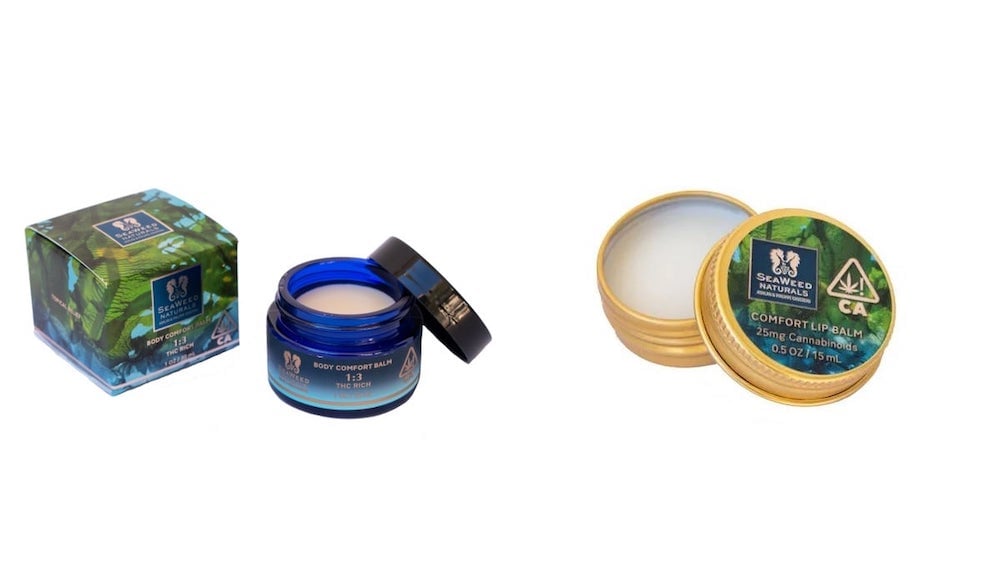
The Environmental Might of Seaweed
One of the reasons SeaWeed Naturals is on our radar as an environmental leader is the power of seaweed itself. It absorbs CO2, produces healthy marine ecosystems, elevates pH levels in the ocean, and the list of benefits goes on and on.
SeaWeed Naturals sources many of their input materials from a seaweed farm in Maine, which is creating a whole host of environmental positives throughout the region. Further, the brand gives five percent of its profits to ocean education, protection, and restoration programs. As you may expect, SeaWeed Natural also uses environmentally-friendly packaging.
“Everything [in our packaging] is recyclable, we’re using aluminum, tin, and glass, and the least amount of plastic as humanly possible,” added Ashlan.
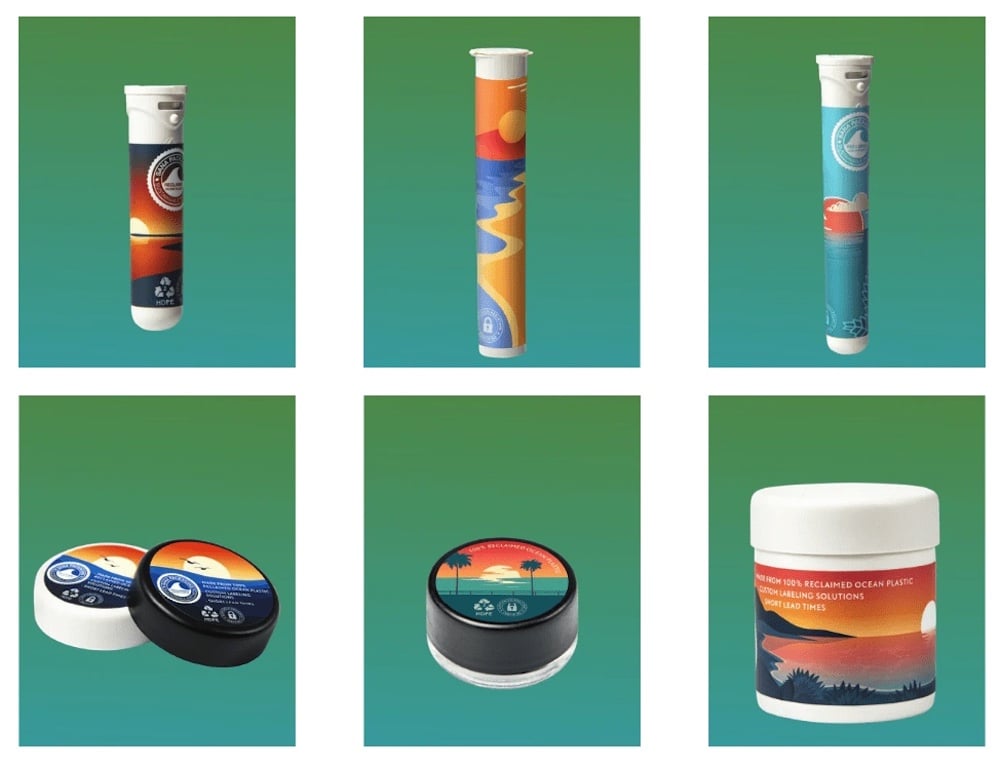
Nice Package
Staying on the topic of sustainable packaging, a very important company of note is Sana. This Colorado-based packager prides itself on being an environmental brand using plant-based, reclaimed, and recycled inputs for its materials. “The two primary materials we work with right now are plant-based hemp plastic biocomposite and several types of ocean-bound and reclaimed ocean plastic,” said co-founder and chief strategy officer James Eichner.
Eichner added that using these materials is “one piece of a much larger puzzle,” and Sana has big plans to do more. “When we think about trying to move towards circularity, a big part of that in cannabis packaging will be being able to recover and reuse materials in order to extend their useful lives. There’s a lot of regulatory stuff that can make that difficult.”
Sana also recently received a grant from the Colorado Department of Public Health & Environment (CDPHE) to pilot a program to collect and remanufacture cannabis packaging. “Hopefully this will be a program that is successful [so] that we can replicate and scale in other markets,” he noted.
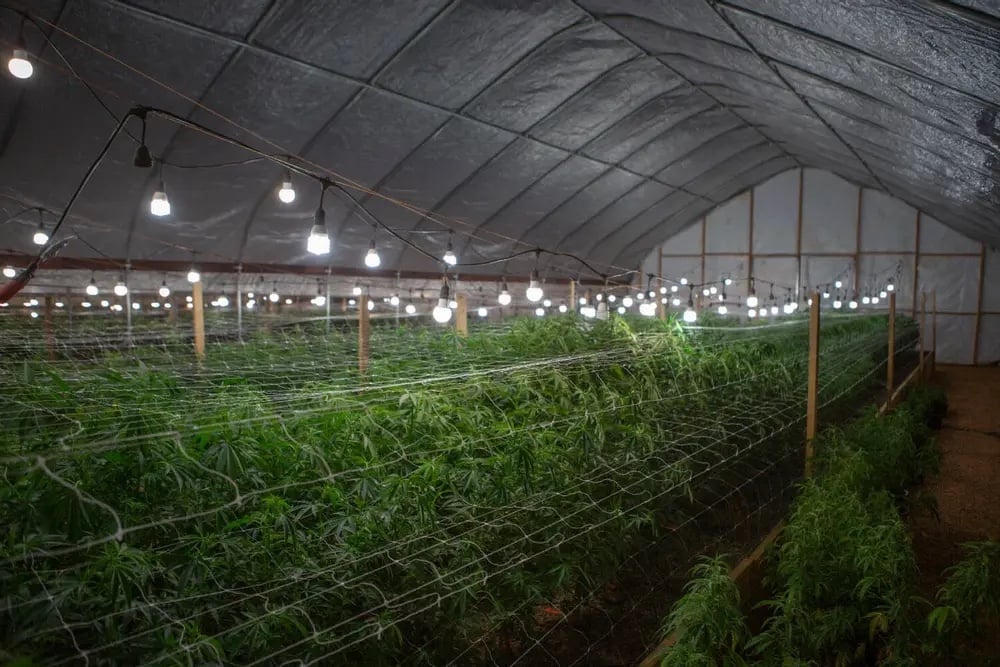
Living Off The Grid
Helping the environment in the cannabis industry goes far beyond sustainable packaging. Using sustainable resources to grow cannabis is a big part of the larger picture.
Stone Road is a cannabis brand with a family-run, 57-acre biodynamic farm in Nevada City, California. Although the land is vast, 99 percent of it remains wild and untamed. The water for their cultivation comes from a 460-foot deep artesian well, and they use living soil to grow their cannabis as nature intended.
“The farm is a completely off-grid, entirely solar-powered cultivation operation,” said Lex Corwin, Stone Road’s CEO. “We quite literally don’t pull anything from the county grid.”
Corwin also pointed out that Stone Road uses packaging with non-toxic ink and fully recycled material. “We’re [also] making sure that we’re not mixing too many materials in one package, making it unrecyclable,” he added. “Consumers should know that we are acutely aware of the waste issue in cannabis and we’re doing all we can to try to mediate that.”
Corwin added that, unfortunately, it’s “dollars over everything” for a number of companies. But as a 29-year-old, he has been privy to a number of the more acute climate change disasters throughout his life. “It’s just the way that you want to live. Do you want to be a part of the problem or do you want to be a part of the solution?”
Just two days after the industry’s biggest day of retail, Earth Day 2022 is a great time for the industry to show its support by helping to ensure that environmentally-friendly products are made available to consumers as often as possible.









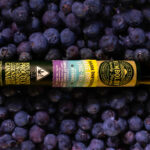
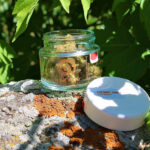


[…] first certified green business designation for a cannabis company in 2016. The award is given for eco-friendly efforts across business management, energy efficiency, water conservation, resource management and […]
[…] are small, local, and determined to make a positive impact on the community and the world. Couple a genuine do-good attitude with high-quality products, and you’ve got a winning modern […]
[…] packaging a brand chooses to use can send a message about its values and priorities. For example, a company that values sustainability may opt for packaging made from recycled or biodegradable materials, while a luxury brand may […]
[…] But this shift might have a lot to do with who is buying more cannabis today. Members of Gen Z —anyone born between 1997 and 2012—are slated to become the industry’s biggest spenders within the next few years, and they’re bringing a demand for healthy, affordable, honest, diverse, and socially responsible brands. […]